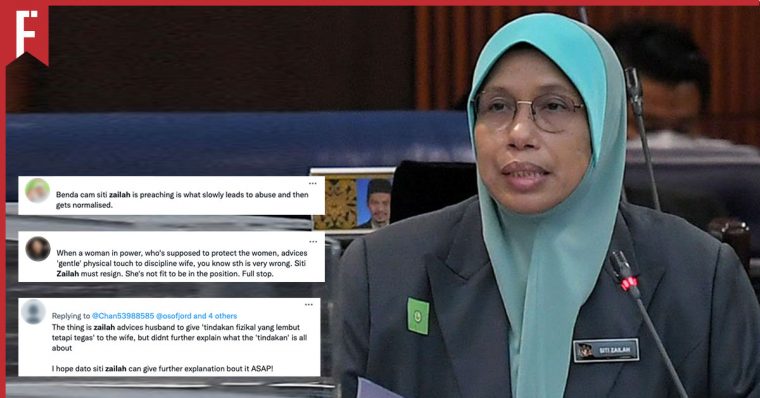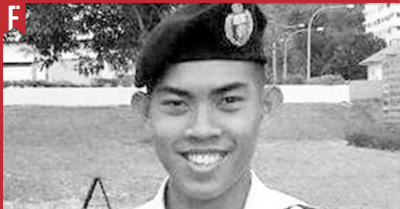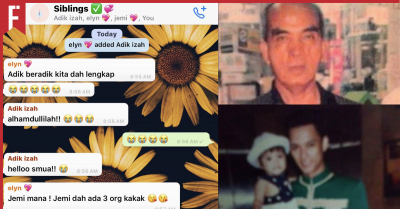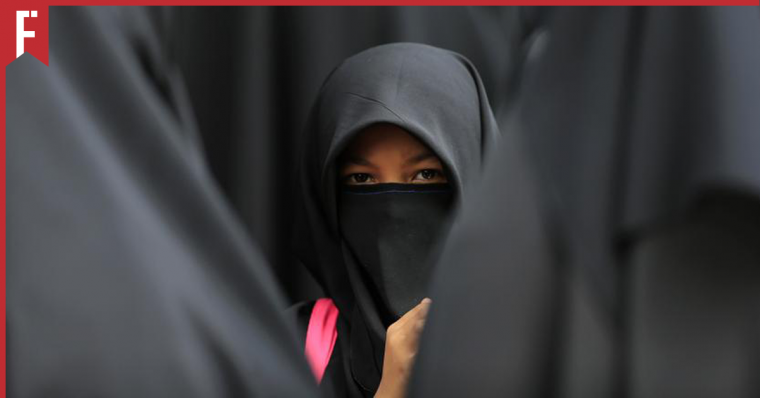
When I was about 12, my mother sat me down for an important conversation. She explained that she would be converting to Islam and asked if I was interested in doing the same.
“Does that mean that I’d need to take Agama class?” I asked.
“… I guess?” she replied uncertainly.
“Then better not,” I decided. “Moral is one of the only classes I’m good at. I need all the A’s I can get.”
And that was it. My mother converted, while I remained the same. In truth, it didn’t affect our lives too much. Sure, there was no more pork at the dinner table, but it wasn’t like we were eating it a lot anyway.
The only awkwardness came from the number of times I walked into my mother’s room to ask her something, only to apologise and close the door because she was in the middle of prayers.
Unfortunately, when it comes to religious conversion, not all families are the same.
When Religious Differences Tear Families Apart
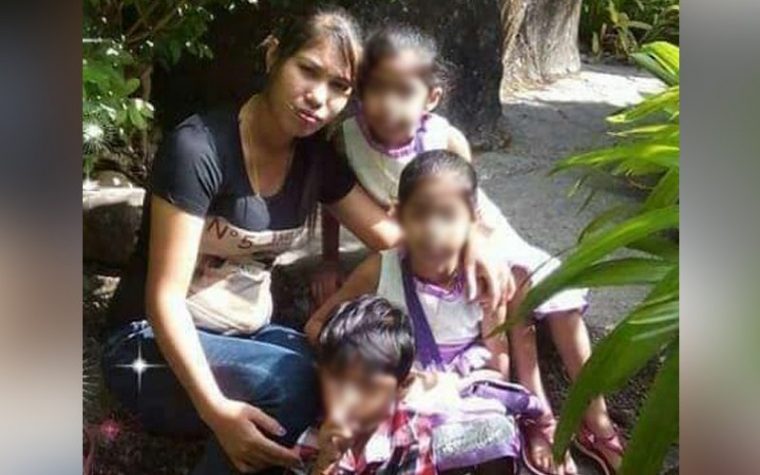
Single mother Loh Siew Hong’s nightmare began in 2019, when she went to the hospital due to injuries purportedly caused by her abusive husband Nagashwaran Muniandy.
After returning home, Loh was shocked to discover both her husband and her children had disappeared. Despite divorcing her husband and obtaining full custody over her children in March 2021, Loh could not see her children for another three years.
Even after her ex-husband was arrested and sent to jail in Kelantan due to a drug related offense, Loh would only find her children again in January 2022, when she received a Facebook message from an unknown person revealing that her daughters were at a shelter in Penang.
However, finding her children again was only the first step.
“I have not seen them for three years and they were reluctant to follow me initially. They were worried that their father might harm himself in prison if they were to follow me home,” Loh said in an interview with the Malay Mail.
Before Muniandy was arrested, he allegedly converted himself and the children to Islam in July 2020, which caused the situation to become more… complicated.
Religious Conversion Has Become A Big Issue in Malaysia
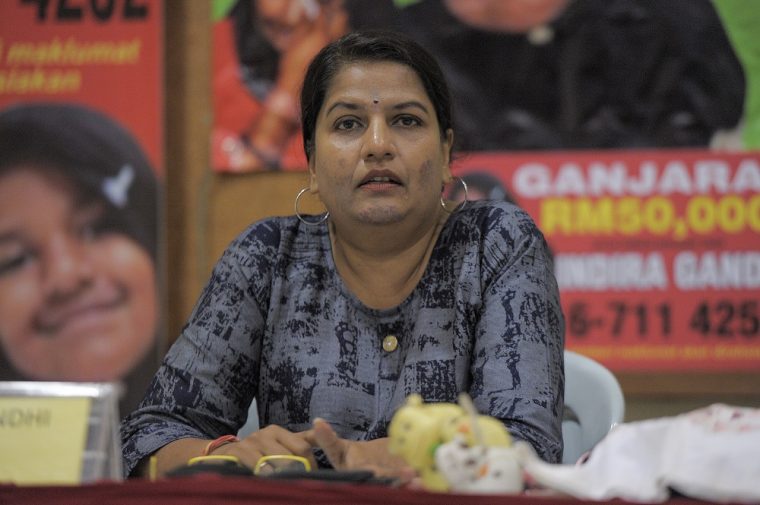
Thankfully, in the end, Loh and her kids were able to be reunited again after the court granted her a habeas corpus application.
However, her case has raised many uncomfortable questions for non-Muslim families, especially given that this isn’t the first time that abusive husbands have used religious conversion as a tool to keep their ex-wives away from their children.
Some of you may remember the M. Indira Gandhi case a few years back, when a husband converted himself and his three children without informing their mother, then went to the Sharia courts to obtain custody over them.
Although the courts have declared that unilateral conversions of children to Islam is unlawful, the idea that an abusive partner could convert your children and simply take them away is understandably frightening for many parents.
To understand more about this topic, we at The Full Frontal spoke to Jane (name changed to protect privacy) to get her perspective as a Chinese woman who chose to convert to Islam.
What’s It Like to Convert to Islam?
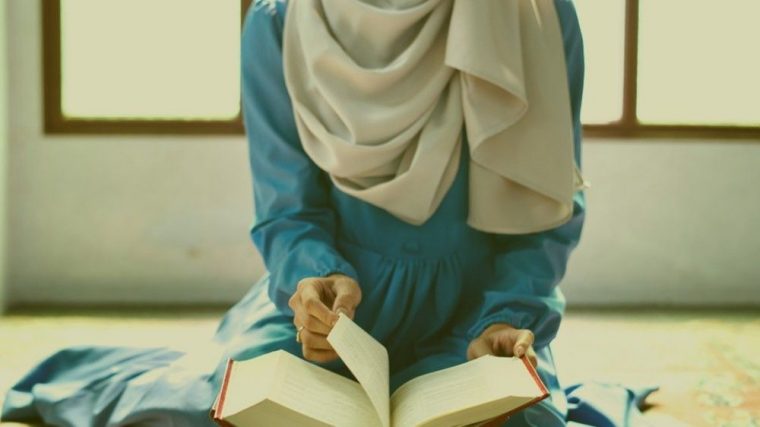
A practicing lawyer in her 20s, Jane has been interested in Islam for a while. However, it wasn’t until fairly recently that she decided to take the next step.
“I’ve been a practicing Muslim since April 2019,” she said. “I converted officially in August 2020 after I told my parents and got their agreement.”
“There are a lot of places that one can do their conversion. I did mine at Al-Khadeem, Kayu Ara. There is one borang to fill in, no written test to go through before that. However, the person in charge will ask you whether you are willing to take syahadah (an islamic creed) without force by any third party.”
Jane explained that as part of the conversion process, she had to know the five rukun Islam, six rukun Iman and the significance of the syahadah before the ceremony started. For Jane, Islam is a way of life, one that has brought her much comfort over the past few years, so she recited the syahadah without any regrets.
“Islam helps me to achieve happiness in life. By putting trust in Allah, it removes my worries and stress. It teaches me to understand that life in dunia is just temporary and there are tests that we need to go through.”
Sadly, not everything has been smooth sailing. Even (or perhaps especially in Malaysia), Muslim converts still face many difficulties. Over the past few years, Jane has had to deal with the (sometimes difficult) opinions of those who learn about her religious conversion.
“My parents took some time to accept it,” she admitted. “Especially my mum. She was afraid that I might not be able to follow all the strict ‘rules and regulations’ set in the religion.”
“I do get comments from the people surrounding me — both positive and negative. In some situations, the best answer I could give is to return the comments with a smile.”
“To Be Honest, This News Frightens Me As Well”
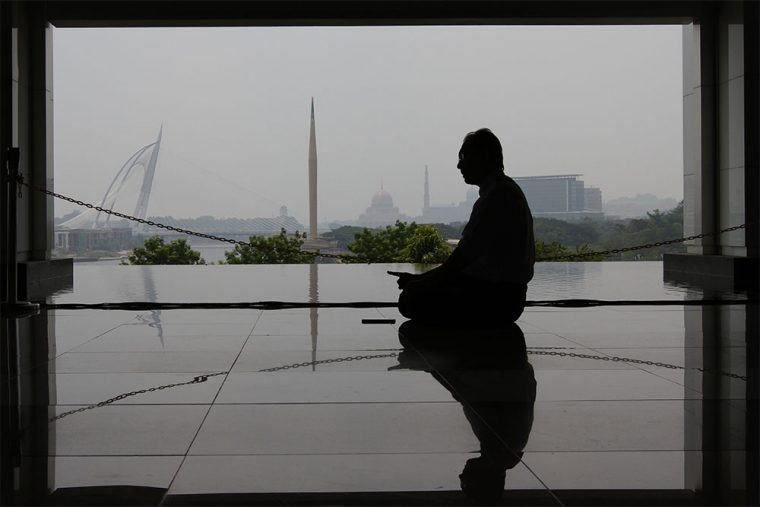
Although she has found happiness in Islam, Jane is aware that not everybody who converts might be doing so for good intentions.
“This news (about Loh’s case) definitely frightens non-Muslims. To be honest, this news frightens me as well,” said Jane. “Children under the age of 18 should only be allowed to convert if both their parents agree to it.”
Perhaps one could argue that the men who chose to convert their underaged children were doing it out of good intentions. Maybe Muniandy truly believed that he was doing the right thing at the time.
Unfortunately, we currently can’t ask him for his side of the story given that he’s still in jail.
But if he actually believed that he was helping, why did he not discuss it with the rest of his family first? Why run and take the kids away from their mother? Was this case truly fueled by sincere religious beliefs or was the conversion simply a way to force the kids to stay with him?
“If I were in that kind of situation (similar to Loh), I would proceed with every kind of legal action in order to be reunited with my children,” said Jane. “Children should be allowed to stay with their parents despite their religious differences.”
Islam Is Not An Evil Religion
Although she has faced some difficulties due to her religious conversion, Jane says that there have been many positive moments as well.
“I remember once when I finished jamaah prayer in the masjid, the sisters praying beside me approached me and gave me salam with a big hug,” she said. “Later, there were another seven or eight sisters who did the same to me. One of them even burst to tears.”
In the end, it is clear that the vast majority of Malaysian Muslims are appalled by the behaviour of abusive husbands such as Muniandy. Their irresponsible behaviour harms not only their own families, but also the reputation of all other Muslims at the same time.
At its heart, Islam is a religion of peace and love, not tyranny and abuse. Yet when faced with cases like Loh and Indira, is it any wonder why some non-Muslims might become more suspicious of their Muslim neighbours?
In order to protect our multicultural, multiracial society, both Muslims and non-Muslims alike need to stand united and make it clear that this sort of behaviour should not be allowed.
“Tak kenal maka tak cinta. I once had a bad perception of Islam as well,” said Jane. “Give this religion a chance. Learn more about it and you might fall it love with it.”
We Need to Target The Root Cause
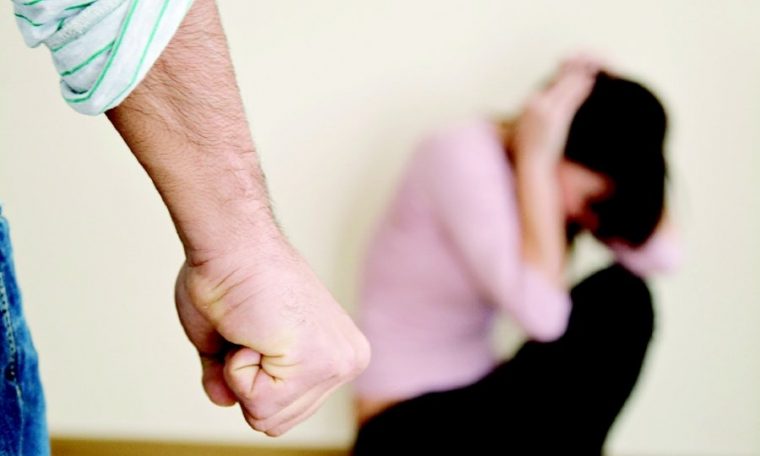
In the end, a lot of these cases seem to share one common factor: domestic abuse.
Over the past few years, it has become plain that a lot of Malaysians tend to have an unhealthy understanding of relationships. Just bring up the topic of domestic violence and some people suddenly start acting very uncomfortable.
However, despite how uncomfortable it may feel, the fact is that we need to confront this issue head on. If we insist on sweeping it under the rug, this situation is just going to happen over and over again.
Even if we change the law to make it illegal to convert children, abusive parents are just going to find another way to control their kids — regardless of how damaging it might be to the children’s physical or emotional health.
Domestic abuse isn’t something you need to rationalise nor make excuses for. And that maybe a lesson some people need to learn:
“Disciplining” Your Wives For Misbehaviour? I Softly, Yet Firmly Disagree
